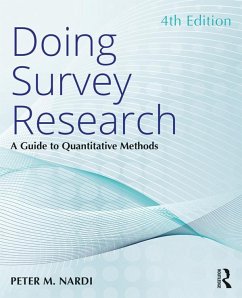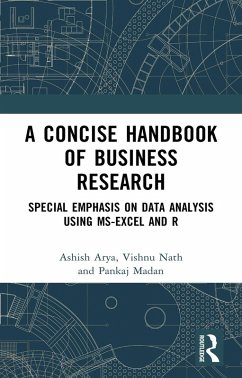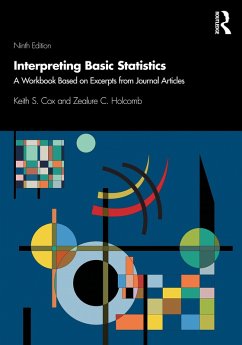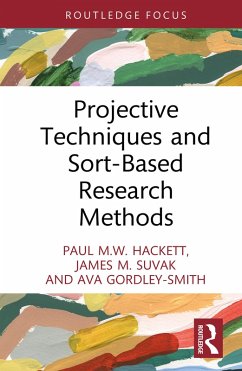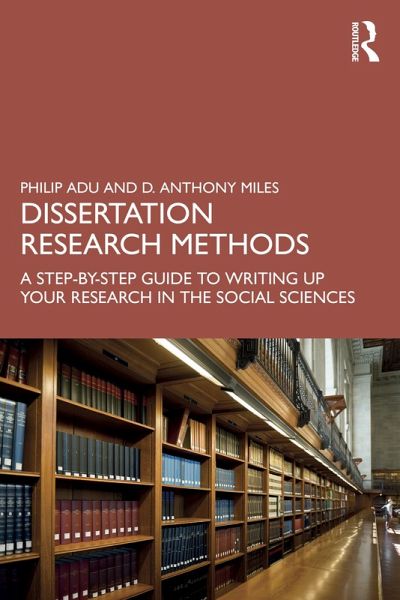
Dissertation Research Methods (eBook, ePUB)
A Step-by-Step Guide to Writing Up Your Research in the Social Sciences
Versandkostenfrei!
Sofort per Download lieferbar
42,95 €
inkl. MwSt.
Weitere Ausgaben:

PAYBACK Punkte
21 °P sammeln!
Dissertation Research Methods: A Step-by-Step Guide to Writing Up Your Research in the Social Sciences focuses specifically on the methodology for planning, writing and submitting your dissertation thesis. Written by two methodology experts in the social sciences, the book provides a step-by-step guide through each stage of the dissertation process.It covers all aspects of the methodological considerations needed, from choosing a topic or research question, developing a literature review, identifying research gaps, accessing potential study participants, utilizing the right sampling strategies...
Dissertation Research Methods: A Step-by-Step Guide to Writing Up Your Research in the Social Sciences focuses specifically on the methodology for planning, writing and submitting your dissertation thesis. Written by two methodology experts in the social sciences, the book provides a step-by-step guide through each stage of the dissertation process.
It covers all aspects of the methodological considerations needed, from choosing a topic or research question, developing a literature review, identifying research gaps, accessing potential study participants, utilizing the right sampling strategies, analyzing data and writing up findings. Readers are introduced to the main research methods normally used in dissertations and their characteristics, and they are guided to choose an appropriate research method for their study, provide a substantial description of the selected method and articulate strong arguments in support of it. The book is filled with templates, exemplars and tools to help students write about methodology in their thesis and to equip readers to successfully troubleshoot any methodology challenges they may face.
This compact book will be of use to all graduate students and their supervisors in the Social Sciences and Education and Behavioural Sciences who are looking for a guide to working with robust and defensible methodological principles in their dissertation research and theses.
It covers all aspects of the methodological considerations needed, from choosing a topic or research question, developing a literature review, identifying research gaps, accessing potential study participants, utilizing the right sampling strategies, analyzing data and writing up findings. Readers are introduced to the main research methods normally used in dissertations and their characteristics, and they are guided to choose an appropriate research method for their study, provide a substantial description of the selected method and articulate strong arguments in support of it. The book is filled with templates, exemplars and tools to help students write about methodology in their thesis and to equip readers to successfully troubleshoot any methodology challenges they may face.
This compact book will be of use to all graduate students and their supervisors in the Social Sciences and Education and Behavioural Sciences who are looking for a guide to working with robust and defensible methodological principles in their dissertation research and theses.
Dieser Download kann aus rechtlichen Gründen nur mit Rechnungsadresse in A, B, BG, CY, CZ, D, DK, EW, E, FIN, F, GR, HR, H, IRL, I, LT, L, LR, M, NL, PL, P, R, S, SLO, SK ausgeliefert werden.






